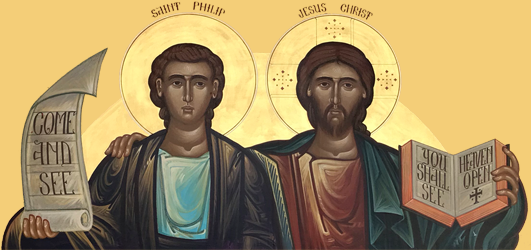Genesis 49:10
“The scepter shall not depart from Judah, Nor a lawgiver from his loins, Until Shiloh comes; And to Him shall be the expectation of the nations.” (OSB)
Genesis 49 presents Jacob’s final, prophetic blessing of his sons just before his death, anticipating much of the Scriptural story to come. In particular, the Apostles and Fathers of the Church perceived in the blessing of Judah (Genesis 49:8-12)—who is Jacob’s fourth son born from Leah (Gen 29:31-35)—a striking prophetic picture of Christ. In the immediate context of Genesis, though, what is particularly surprising is how Judah displaces Joseph as the preeminent son of Jacob and bearer of the promise (compare Gen 49:8 and Gen 37:5-11). How can this be?
In Genesis 37, we are introduced to Joseph, to his prophetic dreams and favored status with Jacob, and soon thereafter to the brothers’ conspiracy to be rid of Joseph (compare Gen 37:18-20 with Matt 21:38-39). Judah emerges as the ring-leader of the group, concocting a plan to profit from Joseph’s demise (see the other “Judah” in Jn 12:4-6) by selling Joseph into Egyptian slavery. This sets the stage for Joseph’s rise to power in Egypt under Pharaoh, the protection of Israel from the famine, and the descent of all Israel (Jacob’s family) to Egypt.
Later, in the brothers’ second trip to Egypt to acquire food from Joseph—who is incognito—Joseph hatches his own plot for his dramatic self-reveal to them. Joseph has his regal chalice hidden in Benjamin’s (Jacob’s youngest son now) sack of grain, on which basis Joseph can charge his brothers with theft (Gen 44). As the story unfolds, Judah emerges again as the ring-leader (Gen 44:14ff), but this time in defense of Jacob’s youngest son, Benjamin. Judah offers to hand himself over in the place of Benjamin so that all Israel might go free (Gen 44:33-34).
In the intervening years between Gen 37 and Gen 44, Judah has clearly undergone a great transformation, a great repentance. What happened to Judah to provoke this repentance? The key is in Genesis 38 which follows directly—and abruptly—upon the Judah-lead conspiracy against Joseph. Genesis 38 recounts the salacious story of Judah’s encounter with his daughter-in-law Tamar. When Tamar’s pregnancy becomes evident, Judah moves to have her stoned, not realizing that he is the father. Tamar produces the evidence of his paternity and Judah exclaims, “She has been more righteous than I …” (Gen 38:26). The story-teller leaves it to us to connect the dots from this episode to Judah’s transformed character in Genesis 44—what must have been going on in Judah’s heart and mind as he witnessed the destruction and pain he had caused in his family?
And yet, God in His providence was working through all of this. From the illicit union of Judah and Tamar will come the line that will produce Boaz, Jesse, David, and ultimately our Lord according to the flesh (Ruth 4:18-22; Matt 1:2-6; Lk 3:31-34).
From Joseph will come two sons, Ephraim and Manasseh, who represent the leading tribes of the Northern Kingdom (Samaria) which will “disappear” into history after the Assyrian exile in 722 BC (2 Kgs 17). From Judah will come the Davidic Kingship, the grace of the election of Zion/Jerusalem (see Psalm 2), and the Southern Kingdom—which also will go into exile, in Babylon in 586 BC, but return under Ezra and Nehemiah. In one sense, Joseph’s story “ends,” Judah’s becomes “eternal”—though Joseph, too, is a venerable prophetic type of Christ, as the Fathers discuss.
Gen 49:8-12 is a prophecy that invests Judah and his line with the Abrahamic promise, which means that Judah and his Seed are the answer to the problem that goes all the way back to the Garden of Eden: Judah’s Seed is the Seed of the Woman who will crush the head of the Serpent; the Lion—who is also Lamb and Lawgiver—who will liberate God’s people and all of creation from the Serpent’s tyranny.
~ By Reader Justin Gohl

